Indianapolis, Indiana – An Indiana trademark attorney for Noble Roman’s, Inc. of 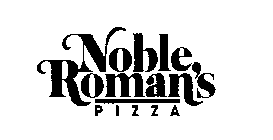 Indianapolis, Indiana filed a lawsuit in the Southern District of Indiana alleging that Sahara Sam’s Indoor Water Park, LLC of Pennsauken, New Jersey (“Sahara”) infringed its trademarks. These trademarks are: Noble Roman’s®, Trademark Registration No. 987,069; THE BETTER PIZZA PEOPLE, Trademark Registration No. 1,920,428; and a design mark, Trademark Registration No. 1,682,308. Noble Roman’s also states that it has registered the Tuscano’s® mark. In addition to trademark infringement, Noble Roman’s asserts that Sahara engaged in false designation of origin and unlawful competition. Noble Roman’s has registered its marks with the U.S. Patent and Trademark Office.
Indianapolis, Indiana filed a lawsuit in the Southern District of Indiana alleging that Sahara Sam’s Indoor Water Park, LLC of Pennsauken, New Jersey (“Sahara”) infringed its trademarks. These trademarks are: Noble Roman’s®, Trademark Registration No. 987,069; THE BETTER PIZZA PEOPLE, Trademark Registration No. 1,920,428; and a design mark, Trademark Registration No. 1,682,308. Noble Roman’s also states that it has registered the Tuscano’s® mark. In addition to trademark infringement, Noble Roman’s asserts that Sahara engaged in false designation of origin and unlawful competition. Noble Roman’s has registered its marks with the U.S. Patent and Trademark Office.
Noble Roman’s is in the business of franchising the operation of Noble Roman’s pizza franchises that feature pizza, breadsticks, and other related food items to various franchisees throughout the world. Noble Roman’s has used its trademarks, among them “Noble Roman’s” and “The Better Pizza People,” registered in 1974 and 1995, respectively, in commerce in connection with marketing, identifying, and promoting its pizza franchises.
On or about June 27, 2005, Noble Roman’s and entered into two franchise agreements. Under the terms of the agreements, Sahara became a franchisee of Noble Roman’s, licensed and authorized to sell “Noble Roman’s” and “Tuscano’s” branded food products using Noble Roman’s intellectual property assets. Noble Roman’s asserts that these agreements included terms relating to the accurate reporting of sales and timely payment of franchise fees and other fees.
Sahara is accused of failing to pay royalties as required under the agreement and of misreporting sales, among other things. Noble Roman’s contends that Sahara purposely, intentionally and knowingly misreported its sales to Noble Roman’s for the purpose of avoiding payment of franchise fees and/or royalties which were due.
Noble Roman’s also contends that, after electing not to renew the franchise agreements, Sahara violated certain post-termination provisions of the Agreements, including those which require Sahara to: (1) cease to use any Noble Roman’s proprietary products; and (2) remove from public view and display any signage or other articles containing or depicting the trademarks.
Sahara is further accused of having violated the non-competition covenants by selling, after termination of the franchise agreements, various food items “which can be utilized without knowledge gained from Noble Roman’s.”
Noble Roman’s states that Sahara’s actions were without the authorization or consent of Noble Roman’s and that they constitute trademark infringement, in violation of 15 U.S.C. § 1114(1), as well as false designation of origin in violation of 15 U.S.C. § 1125.
The complaint, filed by an Indiana trademark lawyer, lists the following:
• Count One (Trademark Infringement)
• Count One [sic] (Breach of Contract)
• Count Two (Fraud)
• Count Three (Injunctive Relief)
Noble Roman’s asks for injunctive relief, as well as judgment in its favor in amount to be proven at trial, together with interest, punitive damages, costs of collection and reasonable attorney’s fees.
Practice Tip: Noble Roman’s has been particularly aggressive in enforcing franchise agreements. Since 2007, it has also filed the following suits in the Southern District of Indiana:
February 12, 2014 – NOBLE ROMAN’S, INC. v. B & MP and LESLIE PERDRIAU
September 5, 2012 – NOBLE ROMAN’S, INC. v. VILLAGE PANTRY
March 17, 2011 – NOBLE ROMAN’S, INC. v. FINDLAY TIFFIN OIL, LLC and AYMAN MAGDADDI
January 27, 2011 – NOBLE ROMAN’S INC. et al. v. BRABHAM OIL COMPANY and BRABHAM OIL COMPANY
October 9, 2009 – NOBLE ROMAN’S, INC. v. CITY CENTER FOOD CORP., INC.
August 31, 2009 – NOBLE ROMAN’S INC. v. W.J. INTERNATIONAL GROUP, LLC
July 17, 2009 – NOBLE ROMAN’S, INC. v. MARDAN, INC.
July 8, 2009 – NOBLE ROMAN’S, INC. v. RENTON WILLIAMS
April 21, 2009 – NOBLE ROMAN’S, INC. v. RICHARD A. GOMES and RRCM FOODS, INC.
April 2, 2009 – NOBLE ROMAN’S, INC. v. KANDAKAR ALAM
February 17, 2009 – NOBLE ROMAN’S, INC. v. EXPRESS LANE, INC.
February 10, 2009 – NOBLE ROMAN’S, INC. v. JJP&L, LLC
November 6, 2008 – NOBLE ROMAN’S, INC. v. PARDIS & ASSOCIATES, INC.
October 24, 2008 – NOBLE ROMAN’S, INC. v DELTA PROPERTY MANAGEMENT LLC, ZACK BROTHERS TRUCK STOP, LLC and STANDARD PETROLEUM CORP.
October 6, 2008 – NOBLE ROMAN’S INC. v. JAY’S GAS LLC
April 9, 2008 – NOBLE ROMAN’S, INC. v. SHAHRAM RAHIMIAN
March 17, 2008 – NOBLE ROMAN’S, INC. v. MEDALLION CONVENIENCE STORES, INC.
December 20, 2007 – NOBLE ROMAN’S, INC. v. MICHAEL J. BRUNSWICK, LAURIE BRUNSWICK, and M&L RESTAURANTS, LLC
September 17, 2007 – NOBLE ROMAN’S, INC. v. THE FRENCH BAGUETTE, LLC et al.
July 26, 2007 – NOBLE ROMAN’S, INC. v. MR. RON’S, L.C.
July 19, 2007 – NOBLE ROMAN’S INC. v. BAUER BUILT, INC. et al.
 Indiana Intellectual Property Law News
Indiana Intellectual Property Law News


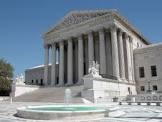 States Supreme Court
States Supreme Court Wauwatosa, Wisconsin (“Ruehl”) and PC Ruehl Engineering, Inc. of Wisconsin (“PC Ruehl”) filed patent infringement litigation in the
Wauwatosa, Wisconsin (“Ruehl”) and PC Ruehl Engineering, Inc. of Wisconsin (“PC Ruehl”) filed patent infringement litigation in the 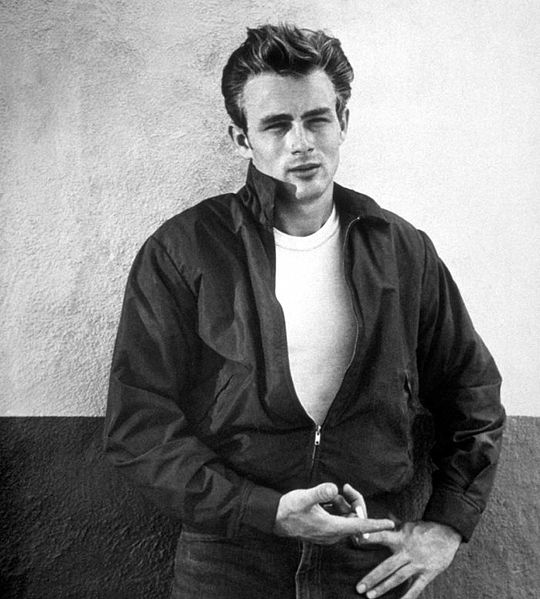 Indiana sued in Indiana state court alleging that
Indiana sued in Indiana state court alleging that  infringed either of two Attachmate software works titled “EXTRA!” and “Reflection”, Copyright Registration Nos.
infringed either of two Attachmate software works titled “EXTRA!” and “Reflection”, Copyright Registration Nos. 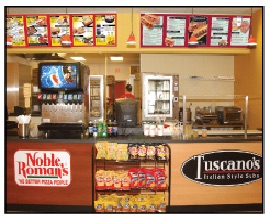 infringed the trademark Noble Roman’s, Registration No.
infringed the trademark Noble Roman’s, Registration No. 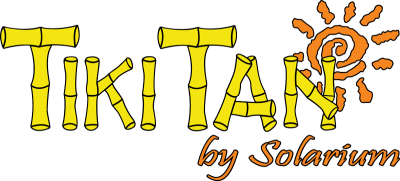 committed trademark infringement of “Tiki Tan”, Trademark Reg. No.
committed trademark infringement of “Tiki Tan”, Trademark Reg. No. Indianapolis-based
Indianapolis-based  BMI is a “performing rights society” under 17 U.S.C. § 101 that operates on a non-profit-making basis and licenses the right to publicly perform copyrighted musical compositions on behalf of the copyright owners. The other Plaintiffs in this action own the copyrights to the ten compositions at issue in this lawsuit.
BMI is a “performing rights society” under 17 U.S.C. § 101 that operates on a non-profit-making basis and licenses the right to publicly perform copyrighted musical compositions on behalf of the copyright owners. The other Plaintiffs in this action own the copyrights to the ten compositions at issue in this lawsuit.